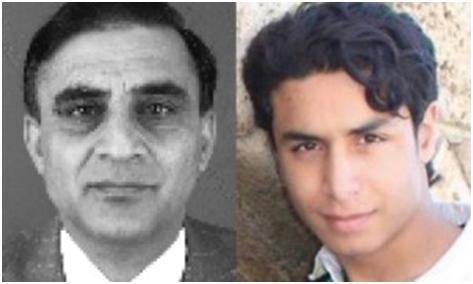
Within the framework of theEuropean Saudi Organization for Human Rights (ESOHR) objectives is the defense ofvictims ofhuman rights violationsin Saudi Arabia, and after correspondence with legal parties, a legal analysis for the judicial rulingand documentsertaining to the case of Ali Al-Nimr was undertaken. The legal analysis found shocking flaws related to the procedural aspects of detention, trial and sentencing, as well as serious shortcomings related to the competency of the judge.
The legal analysis was undertaken by independent expert and former Judge, Zafar Gondal, who is both an expert on counterterrorism and human rights. Judge Gondal has well over two decades worth legal experience, as a judge and magistrate, served as jury in criminal cases in Crown Court of England and member of the Education Appeals Tribunal in the Newham. Currently, he is Senior Legislative, Public Policy, Justice and Security Reforms Expert at the sustainable law institute based in London, as well as a holding a lecturing position at the International Law Institutes African Centre for Legal Excellence. He has also been responsible for training hundreds of judges and prosecutors in Afghanistan.
Ali Al-Nimr, was a young activists who participated in pro-democracy protests during the Arab spring in Saudi Arabia in 2011-12.
He was violently arrested in 2012 at the age of 17, detained and later sentenced to death in 2014 following a secret trial in the Specialized criminal court (SCC). His death sentence has since been upheld by the appeals and supreme Saudi court, and Ali is currently at risk of imminent execution.
Gondal’s analysis begins by setting out the context of Saudi Arabia’slegal obligations with respect to various international and regional treaties to which Saudi Arabia has become a state party and is bound to, with a particular emphasis to the ‘UN convention on the rights of the child’ (CRC) which Saudi acceded to in 1996, which explicitly prohibits capital punishment on minors under the age of 18 at the time of the crime and exhorts that any arrest, detention or imprisonment of child under 18 is the last measure and that too for shortest possible time, and with full access to guardians and legal assistance.
Gondalthen descends into a detailed breakdown of Ali Al-Nimr’s specific case, based on the judicial certificate and key case documentation. The conclusions of the expert analysis are shocking, and are summarised below:
· Lack of any evidence: There was an absence of any form of concrete evidence to corroborate the charges. No oral, physical or scientific charges were presented at all. Neither were any of the specific mental and physical elements of crimes described and proved.
· A biased and incompetent judge:The decision of the judge did not meet standards for writing judgments. Each element of a crime must be reasoned out through evidence on file. Due to no concrete evidence, the judgment is based on conjectures and whims, and the judge was biased quoting many fatwas that reflect a particular brand of Islam. The judge also failed several of his legal duties, such as ensuring the accused had access to his lawyer and a fair trial.
· Un-proportional sentence: The judgement does not in any way reflect the severity of the crime, neither by international or shariah law standards.
· Coerced confession: A coerced confession provided the basis for all charges. Ali made the judge aware of this coercion. Despite this the judge accepted the confession and failed to establish its validity using other forms of evidence, Furthermore the investigating authority was not authorized to take the statement and neither were they impartial/independent.
· Lack of access to a lawyer: Ali was denied access to a lawyer throughout his arrest, detention and trial. The judge did not meet his legal duty in ensuring legal access was granted. Ali was not allowed to meet his lawyer inside or outside the court whilst in custody of the investigating authority. Neither the accused nor the lawyer weregranted access to file and record, which means defense was denied.
In short, the expert found the ruling to be in flagrant violation of Article 37 and 40 of the CRC, and also in violation of key provisions of the UNDHR (article 10 & 11), whichis enshrined in the UN charter and is binding on UN member states.
The independent expert analysis has proven major gaps in the prosecution and conviction of Ali Al-Nimr, which violate multiple international treaties, and calls on the judges involved to be the subject of serious disciplinary action.
Furthermore, Gondal also urges Saudi Arabia to take its international obligations seriously.
We at ESOHR consider this independent review as providing astrong and compelling case for the nullification Ali Al-Nimr’s charges and sentence, and call for a re-trial based on international fair trial principles and under the monitoring of neutral observers. Based on our own close monitoring, these findings have wider applicability to other death penalty cases where similar issues prevail, particularly in the cases of: SheikhNimr Al-Nimr, Ali Al-Rebeh, Mohammed Al-Shyookh, Dawood Al-Marhoon, AbdullahZaher, MohammedAlsuwaimil, AshrafFayyadandHusseinAbu al-Khair. We alsoconcurwith the independent experts recommendationon the need totake disciplinaryaction againstthe judge, andallthose complicit in the torture of Ali.
